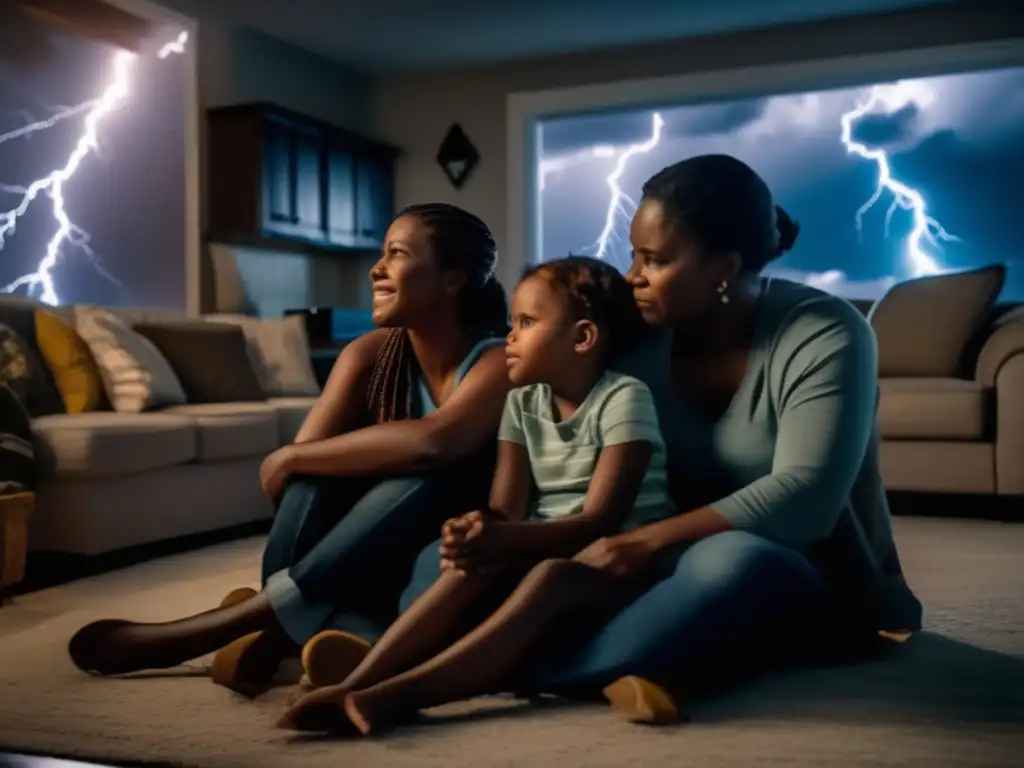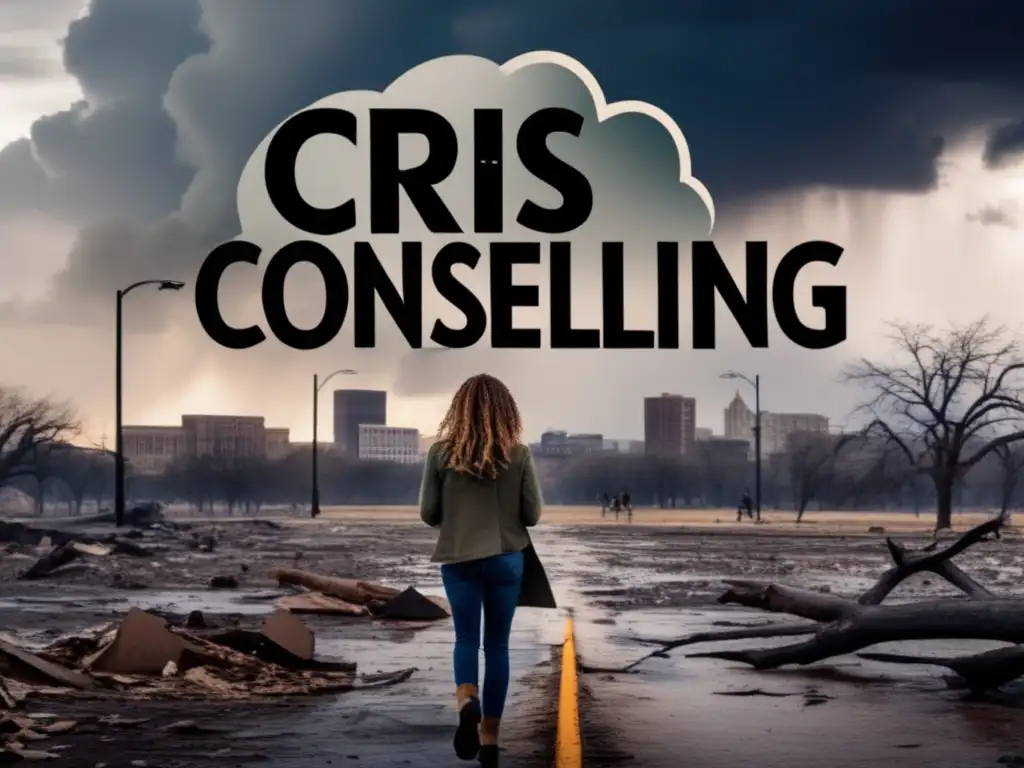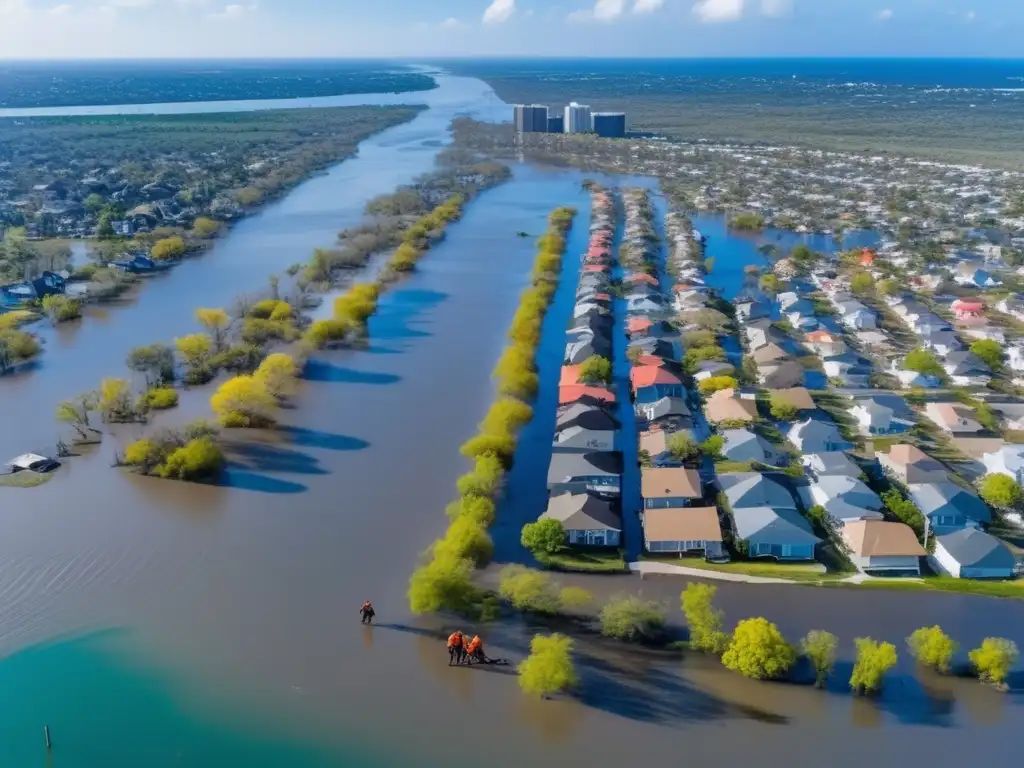Developing Emotional Resilience In The Face Of Disaster

Developing Emotional Resilience in the Face of Disaster
Introduction
Hurricane season can be a stressful time for people living along coastal areas. The fear of property damage, displacement, and potential injury or loss of life can weigh heavily on individuals and their families. Equally important to preparing for the physical effects of a hurricane is preparing for the emotional toll it can take. Developing emotional resilience can help individuals cope with stressors and bounce back after a disaster.
What is Emotional Resilience?

Emotional resilience is the ability to adapt and cope with stressful situations effectively. Being emotionally resilient means that a person can maintain a positive outlook, regulate their emotions, and recover quickly from adversity. Emotional resilience does not mean that someone will not experience emotional pain, but rather that they have the tools to manage that pain and navigate through life's ups and downs.
The Effects of Hurricanes on Emotional Resilience
Hurricanes can have long-lasting effects on emotional resilience. They can disrupt daily routines and limit social support systems, leading individuals to feel isolated. Hurricane survivors may experience anxiety, depression, post-traumatic stress disorder (PTSD), or other mental health issues. These conditions can affect the way a person thinks, feels, and behaves.
Moreover, the fear and uncertainty surrounding an approaching storm can also cause emotional distress, even before the storm hits. People living in hurricane-prone areas should prepare themselves, not only physically but emotionally, for the potential consequences of a severe storm.
Ways to Develop Emotional Resilience

While some people may be naturally more emotionally resilient than others, there are steps individuals can take to build emotional resilience.
One of the key components of emotional resilience is having a strong social support system. Social support can come from close family and friends, community groups, or mental health professionals. Having positive relationships can help create a sense of belonging and give individuals someone to turn to during times of stress.
Practice Positive Thinking
Maintaining a positive outlook can help individuals cope with adversity. Positive thinking involves focusing on the good things in life, looking for opportunities rather than obstacles, and learning from mistakes. When facing a hurricane, try to stay optimistic, focus on what can be controlled, and avoid catastrophizing.
Take Care of Your Physical Health
Physical health and emotional wellbeing are linked. Taking care of one's physical health can help build emotional resilience. Getting enough sleep, eating nutritious food, avoiding drugs and alcohol, and staying physically active can all contribute to better emotional health.
Learn Coping Skills
Coping skills are strategies used to manage stress and adversity effectively. Coping skills can include relaxation techniques, such as deep breathing or meditation, and cognitive-behavioral techniques such as journaling or therapy. Learning coping skills before a hurricane can help individuals manage their emotions during and after the storm.
How Emotional Resilience can Help Before and After a Hurricane

Emotional resilience can help individuals prepare for a hurricane and cope with its aftermath. Building emotional resilience can help decrease feelings of panic and anxiety before the storm hits. It can also increase the likelihood of being able to adapt to the challenges that come with evacuating or staying put during the storm.
After a hurricane, emotional resilience can make it easier for individuals to cope with losses, rebuild their lives, and recover from trauma. Emotional resilience allows individuals to seek out support, reframe negative thoughts, and find meaning in their experience.
Frequently Asked Questions

-
What should I do if I am experiencing anxiety or depression after a hurricane?
If you are experiencing anxiety or depression after a hurricane, seek out mental health professionals for support as soon as possible. They can provide counseling and medication when needed.
-
How can I stay positive during a hurricane?
Find a way to stay busy and distracted during the hurricane, such as playing games with family members. Try to stay optimistic and focus on the positive aspects of your situation.
-
What role does exercise play in emotional resilience?
Exercise releases endorphins which can improve mood and reduce stress. Regular physical activity can help build emotional resilience.
-
What should I do if I am feeling overwhelmed during a hurricane?
Take a break and practice relaxation techniques such as deep breathing or meditation. Talk to someone close to you or a mental health professional about how you are feeling.
-
Can emotional resilience be developed at any age?
Yes, emotional resilience can be developed at any age by practicing healthy coping skills and building strong social support systems.
Conclusion
Developing emotional resilience is an essential component of preparing for a hurricane. Emotional resilience can help individuals cope with adversity, maintain a positive outlook, and recover quickly from trauma. By establishing social support systems, practicing positive thinking, taking care of physical health, and learning coping skills, individuals can increase their emotional resilience. By increasing emotional resilience before a hurricane, individuals can be better equipped to face the challenges that come with the storm and recover more quickly after the storm.
Additional Resources

- CDC: Coping with a Disaster or Traumatic Event
- FEMA: Hurricane Recovery Publications
- American Red Cross
 Understanding And Accessing Crisis Counseling After A Hurricane
Understanding And Accessing Crisis Counseling After A Hurricane The Use Of Drones In Hurricane Damage Assessment
The Use Of Drones In Hurricane Damage Assessment Cleaning Up Public Spaces After A Hurricane
Cleaning Up Public Spaces After A HurricaneIf you want to discover more articles similar to Developing Emotional Resilience In The Face Of Disaster, you can visit the Hurricane recovery: category.
Leave a Reply

Articulos relacionados: